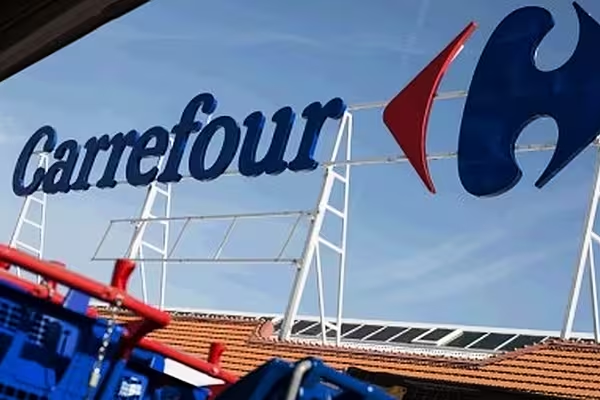New legislation in France that changes the rules of annual negotiations between French suppliers and retailers is likely to be credit negative for the grocery sector, Moody's has said, although it could be positive for smaller packaged food manufacturers.
France's Commission of Economic Affairs assessed the new trade negotiation law (loi Descrozaille or Egalim 3) on 8 February. It now goes on to be examined by the French Senate on 15 February 2023 and, if approved, will become effective for 2023 trade negotiations.
Currently, price negotiations between retailers and producers take place at the start of the year and conclude on 1 March. Under the terms of the new law, if no agreement is reached between retailer and supplier, the relationship between both parties must be terminated within one month.
Reduced Bargaining Power
According to Moody's Francesco Bozzano, "On balance, this provision is credit negative for retailers because it reduces their bargaining power, particularly with large suppliers that they cannot afford to lose, raising the chances of price increases.
"However, the provision is credit positive for smaller packaged food manufacturers with exposure to France that particularly struggled last year to pass on price increases on a timely basis. More timely price increases should ease the profitability erosion that these companies experienced in 2022."
Elsewhere, the new law also increases the limitations of retailers' promotional activities, while European purchasing alliances also now come under the scope of the new law – which is potentially credit negative for Carrefour, which has the Eureca alliance, and E.Leclerc, which has the Eurelec alliance, Moody's noted.
Inflation Rate
"New agreements will fuel already high inflation, pressuring retailers' margins as competition for declining volumes increases and fixed costs continue to rise," Bozzano added.
"While food manufacturers may benefit from the law, they may also suffer alongside retailers if volumes continue to decline. Retailers are receiving requests for double-digit-percentage tariff increases for 2023 in the current negotiations, with suppliers' hedges rolling off and raw material costs still high."
In 2022, the rate of inflation in France was lower compared to other European countries, but prices are still increasing in 2023, in part due to higher electricity tariffs.
In December of last year, a survey by retail magazine Lineaires showed that 82% of French consumers planned to alter their purchasing habits due to the rise in prices, an increase from 75% reported in March 2022.
© 2023 European Supermarket Magazine – your source for the latest Retail news. Article by Stephen Wynne-Jones. Click subscribe to sign up to ESM: European Supermarket Magazine.














